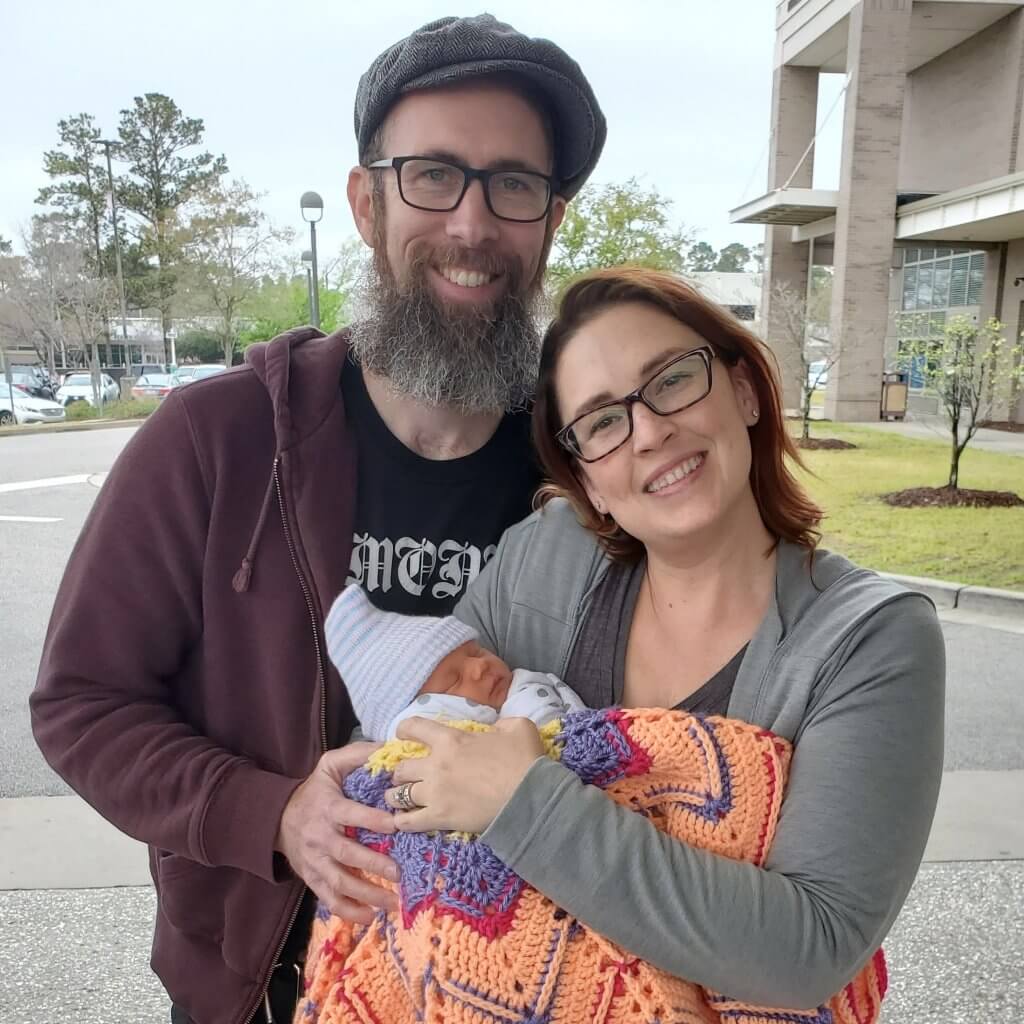
Q. The courts are closed. Are adoptions still happening in NC?
A. Yes. Most counties in North Carolina are allowing filings at the courthouse, which means adoption files are being opened and processed. At A Child’s Hope, we filed three adoption petitions in March – having the adoptive parents sign the petitions in a sterile office environment in the presence of a notary. We then file the paperwork in designated boxes located at the courthouse to prevent attorneys and staff from going into the Clerk’s office.

Q. Are hospitals letting adoptive parents into delivery rooms?
A. In North Carolina, we see hospitals allowing only the pregnant woman and ONE support person in the labor and delivery room. Also, during the COVID crisis, North Carolina hospitals are only allowing ONE of the adoptive parents to care for the child during hospitalization That parent needs to stay with the child throughout the hospitalization – they cannot come and go from the hospital.
For example: during the COVID crisis, there was a baby who was in the NICU for ten days after delivery. The hospital allowed the adoptive mother to stay in the NICU during that time. The adoptive father was able to see pictures through messaging but did not hold the baby until after discharge.
Q. How are women with an unplanned pregnancy finding out about adoptive parents during this pandemic?
A. Birth mothers traditionally locate an adoption agency or adoptive parent profiles through the internet. Fortunately, the internet is Coronavirus safe. All of our waiting families are listed on our website for birth parents to review. See the Family Profiles page.
At A Child’s Hope, we provide three ways for birth mothers to contact us. They call the pregnancy hotline at 877-890-4673, text Pregnant to 919-971-5663, or email admin@localhost. The hotline operator then communicates with the birth mother and talks her through the process.
After the initial discussion, one of our seven adoption counselors spread throughout the state works with the mother. They communicate via phone, meet virtually, as well as arrange in-person meetings in open spaces such as parks or our sanitized agency offices. We ask that masks and gloves be worn, but we can meet.
We provide the same options to match meetings with adoptive parents. They can occur virtually or in-person practicing proper social distancing and wearing PPE.
Q. Has the type of financial assistance to birth mothers changed during COVID-19?
A. Yes, we are offering more support. There are additional stressors on the birth mothers due to unemployment and other critical logistics, such as fewer Uber drivers providing transportation services.
We see more acute housing needs – shelters are often full so hotels are being used for housing. In addition, the stay-at-home order is affecting the length of support necessary after childbirth. Fortunately, North Carolina law allows up to six weeks of support after delivery.
We can be flexible in how financial support is provided. We pay landlords directly, hotels by the week, and suggest that birth mothers see if a relative will take them in for a fee. We are also able to offer gas money, instead of Uber fare, to reimburse friends or family members who provide transportation.
Q. Is there any change in when birth mothers are contacting agencies?
A. Yes, we are getting more calls from women in the early stages of pregnancy, as well as those close to delivery or at the hospital. Adoption agencies such as A Child’s Hope are well prepared to work with all timeframes.
The more notice an agency/family has, the more help we can give in terms of answering questions and making the process go smoothly. But, we will gladly work with a woman who chooses an adoption plan at any time. We can quickly respond when childbirth is imminent, matching mothers with one of the nearly two dozen waiting families ready to bring a child into their home.
Q. Is now a good time to contact an agency about becoming adoptive parents?
A: Yes. We are able to offer virtual education classes and consult with you remotely.
Families whose life is stable and are healthy can use this time to investigate and meet with agencies and plan a future course of action. It takes approximately 90 days to process a family, so they are eligible to adopt a child – conducting a home study, creating their adoption profile and website, as well as completing the education classes.
Q. Does this mean interstate and international adoptions, as well as fertility treatments and surrogacy, are still happening?
A. Not entirely. Travel restrictions internationally have all but closed down international adoptions, as well as international surrogacy. Within the US, air travel is quite limited so that out-of-state adoptions can be difficult.
Families who adopt interstate during this time are finding that driving is easier than flying, but it is also a time issue. Moreover, once you are in a hotel in another city where you can go while waiting for ICPC clearance is limited, and many restaurants are not offering food services.
Speak with one of our adoption counselors.
Call or text the Pregnancy Hotline 24/7
Get guidance on opportunities & next steps.
Our office is open in Raleigh, NC.
© 2026 A Child's Hope. All Rights Reserved.
Please select the first day of your last period
Your last period date: